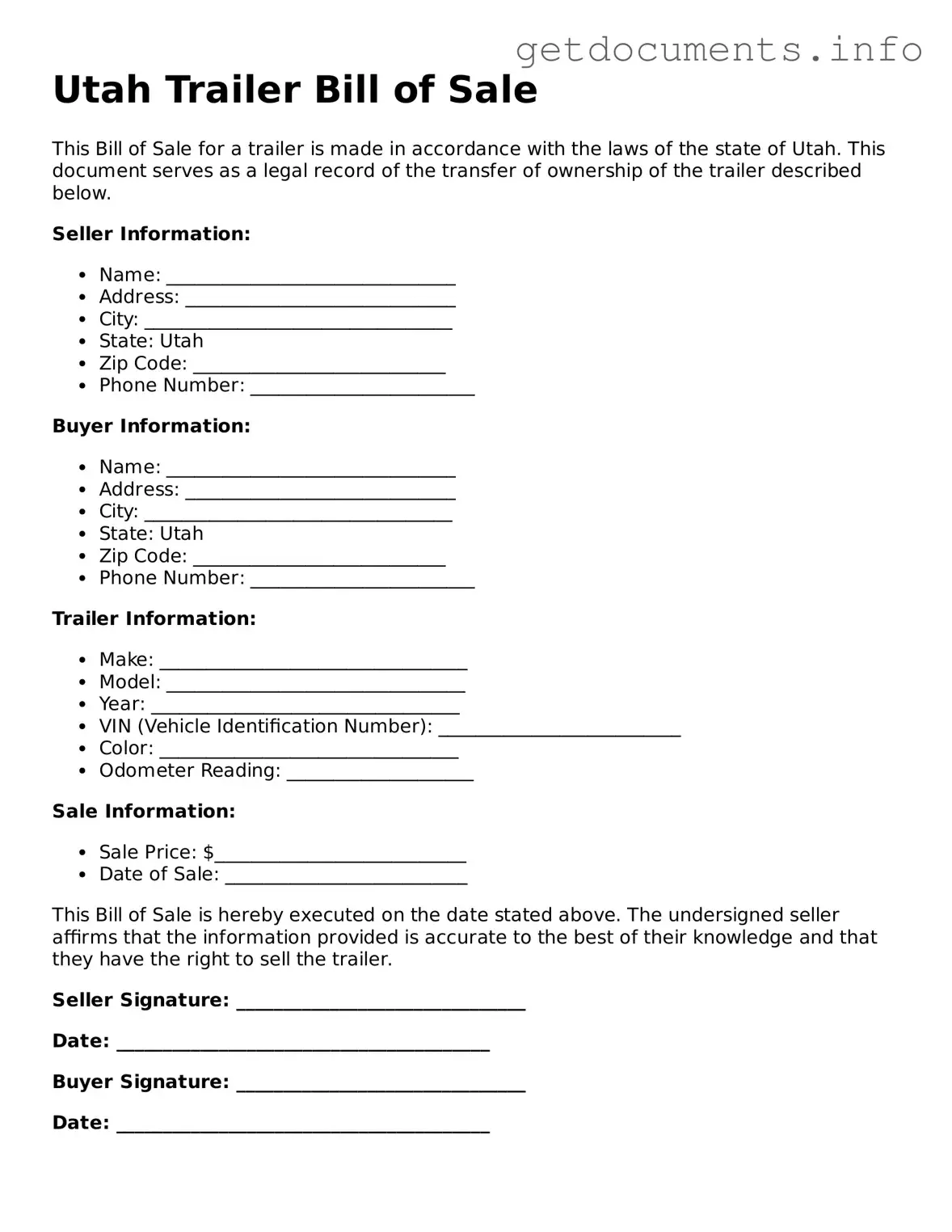Free Trailer Bill of Sale Template for Utah
The Utah Trailer Bill of Sale form is a legal document that facilitates the transfer of ownership for trailers in the state of Utah. This form serves as proof of the sale and includes essential details about the buyer, seller, and the trailer itself. To ensure a smooth transaction, it is important to fill out the form accurately and completely; click the button below to get started.
Access Trailer Bill of Sale Editor

Free Trailer Bill of Sale Template for Utah
Access Trailer Bill of Sale Editor
Got places to be? Complete the form fast
Fill out Trailer Bill of Sale online and avoid printing or scanning.
Access Trailer Bill of Sale Editor
or
⇩ PDF File
